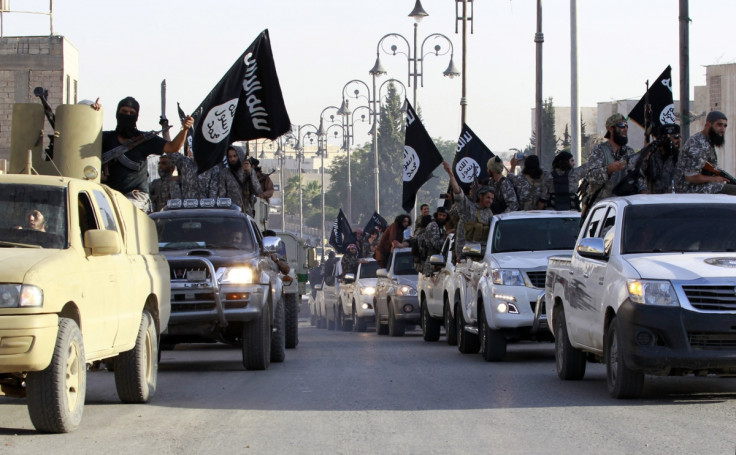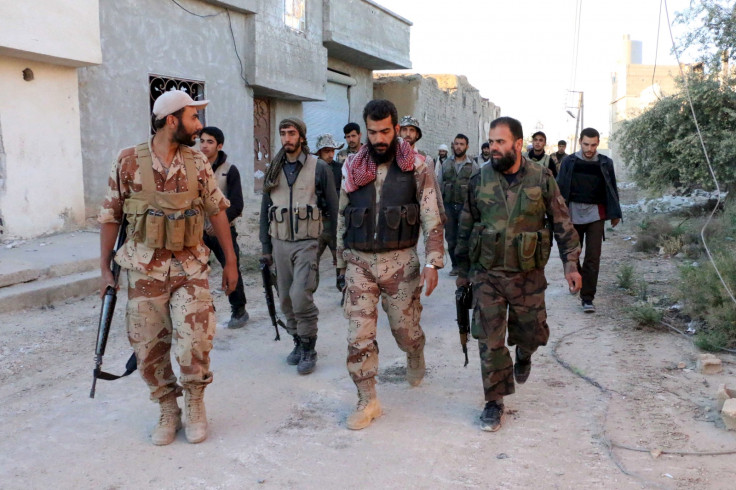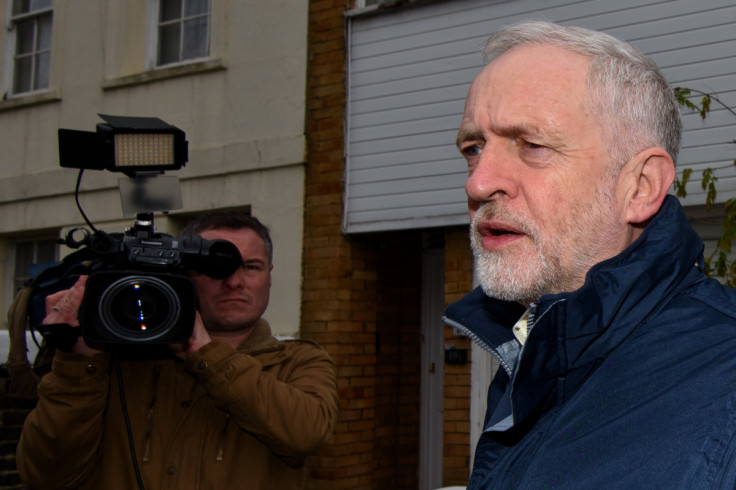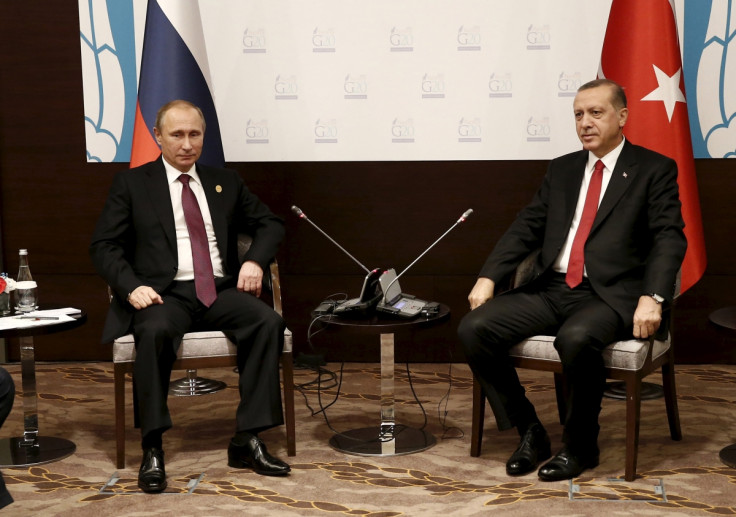Syria crisis: What are the alternatives to David Cameron's plan to bomb Isis in Raqqa?

Labour figureheads may claim that public support for air strikes against Islamic State (Isis) targets in Syria is lacking ahead of a House of Commons debate on Wednesday (2 November), but pollsters suggest that the opposite is actually true. YouGov revealed last week that 59% of the public supported RAF strikes on IS in Syria, with just 20% opposed (1,659 adults surveyed between 23 - 24 November).
But despite public support and the suggestion that dozens of Labour MPs will back David Cameron after Labour leader Jeremy Corbyn allowed a free vote on military action, the case for bombing Syria has been criticised from both the right and left over the past week. The bulk of this has been due to a lack of clarity about what will happen in Syria if and when IS is defeated and the status of our "allies" in Syria.
Critics have poured scorn on Cameron's claim that there are 70,000 "moderate Syrian rebels" in the country that could be supported in a ground assault against IS. The two biggest rebel groups are Jaish al-Islam and the Southern Front, both radical Sunni militias. Others, such as Jabat al-Nusra, are affiliated with al-Qaeda and once fought alongside IS against Bashar al-Assad.
Critics also say that a bombing campaign and the civilian causalities that will likely accompany it plays into IS hands, helping it to cement the narrative that it is waging a war against the West to protect Muslims. Coupled with Russia's military action backing Assad – which suggests that his regime is unlikely to go anywhere fast – Western bombing can be presented as an anti-Sunni campaign and embolden IS support in Sunni-dominated eastern Syria.
Critics further say that it is impossible to restrict civilian casualties given that IS militants are embedded in Raqqa amidst 200,000 civilians. "In Raqqa, Deir Ezzor and Mosul, Isis is living almost totally among civilians, so you can't hit them," Rami Abdurrahman, head of the Syrian Observatory for Human Rights, told the Guardian.
The criticisms have led to calls for a 'political solution' to the Syria conflict, a complex prospect given that no accord could be made, or indeed would ever be accepted, by IS. A deal involving Bashar al-Assad remaining in power is unlikely to ever be accepted by Syria's majority Sunni Arabs, let alone by their backers in Saudi Arabia, Qatar and Turkey.

What are the experts saying?
Even among the most non-partisan of experts on Syria, the consensus appears to be that dropping more bombs on Raqqa is not a solution to fighting IS. They point positively to the recent talks in Vienna, which brought old enemies Saudi Arabia and Iran together, as well as the US, Russia and European powers. Daniel Levy, at the European Council on Foreign Relations, said that the first step to solving Syria is de-escalation of the conflict.
"Attention should now be focused on securing accord on immediate de-escalatory steps and a longer term political process that aims to devolve power as a means of overcoming the current impasse. While a political solution will not on its own be enough to end the IS threat, the conflict has served as a key recruiting tool for IS while provoking a governance vacuum that the group has occupied," Levy said.
Key to this is bringing on side the various backers of different groups in the conflict – Saudi Arabia, Turkey, Russia and Iran in particular, said Levy. Currently Turkey and Russia are trading blows in the media after Turkey downed a Russian plane over Syria, while Saudi Arabia is backing the very groups that are fighting Assad and Hezbollah, an Iranian proxy. This complex geo-political quagmire needs to be resolved before, and not after, IS is defeated.
Speaking to the Guardian, Hassan Hassan, a Syria expert at the Chatham House think tank and co-author of Isis: Inside the Army of Terror, said that Syrian Sunni armed groups needed to be brought onside to fight both Assad and IS but that required far more than simply air strikes.
"The answer is not dropping more bombs. The answer is to find a way to support these groups on the ground. It's not about money or even weapons. It is about helping them with tactics and an overall strategy that has been missing," he said.
What is Jeremy Corbyn saying?
Corbyn may be pilloried in the media for his perceived weakness on Syria, but in reality his criticisms of Cameron's stance are valid and largely backed by experts. He wants more time for Britain to consider action and has quite reasonably suggested that rushing into a new war in the Middle East is not only foolhardy – it is a terrible mistake that Britain has already made three times in the last 15 years.
Corbyn wants to see full UN backing for a campaign in Syria and a long term plan for action once Assad, IS, or both are defeated. He told BBC Radio 2 on Tuesday that Cameron's talk of 70,000 moderates that could qualify for international backing was "mythical".

What is the Stop the War Coalition saying?
The clue is in the name. The Stop the War Coalition has opposed air strikes in Syria and Iraq from the beginning, but the pressure group is far from the broad-based campaign that it was a decade ago, when as many as two million Britons marched in London against the invasion of Iraq. Corbyn was chairman of the coalition until September this year, and he has not sought to play down his links with the group since becoming Labour leader.
In a seven point criticism of Cameron's stance on Syria, the coalition argued that the 70,000 moderate rebels figure quoted by Cameron in the House of Commons "appears to have been snatched out of the air" and said that, contrary to official figures, "numerous" deaths have been caused by US and EU bombing since it began in 2014. But while the coalition is withering in its criticism of Cameron's plan, it has little coherent strategy of its own.
"A political solution is necessary for people of the region to be able to tackle Isis," it claims – the people of the region clearly not being either the Kurds (which it claims are unwilling to stray outside of their own areas in the fight against IS) and the anti-Assad rebels including the Free Syrian Army (which it brands "fragmented and demoralised)."
The coalition suggests, as many others have done, that the main action to be taken on IS would be to reduce the amount of weapons being sold to Saudi Arabia and Qatar (neither of which back IS, instead supporting the rival Jabat al-Nusra and other groups) and cutting off IS supply lines through Turkey.
"Among the many positive measures that could be taken are isolating Isis and other jihadi groups by ending arms sales to the most reactionary and authoritarian regimes in the region, including Saudi Arabia and Qatar. These are countries that sponsor terrorist networks in Syria," it said.
"We should also pressure Turkey to stop allowing its borders to be used for the supply of arms and fighters into Syria. Crucially, Britain and the US should pursue rather than impede peace negotiations."

What is Russia saying?
It is not clear whether Russia – or indeed its ally, Iran – could be persuaded to drop its support for Assad once IS is defeated. What is clear is that Syria's Sunnis and their regional allies Saudi Arabia and Turkey would never accept him as leader of the country, even if it meant the wiping out of IS.
With the focus on Paris, it is easy to forget that both Saudi Arabia and Turkey have suffered horrendous terrorist attacks by IS and its affiliates, yet the prospect of allowing Assad to continue in power is not one that Riyadh or Ankara would ever entertain.
Given that, the UK, Europe and the US are unlikely to lift their condition for Assad to go in any future Syrian peace deal, even if at present some governments – France included – have quietly toned down their anti-Assad rhetoric as the focus turns to IS.
Long term, the prospect of either Europe and US backing the Syrian army or Russia backing the "moderate rebels" against IS is an unlikely one. Rather, both sides will likely wage war against the group in Raqqa independently, leaving Assad's fate for discussion in a post-IS Syria.
© Copyright IBTimes 2025. All rights reserved.






















